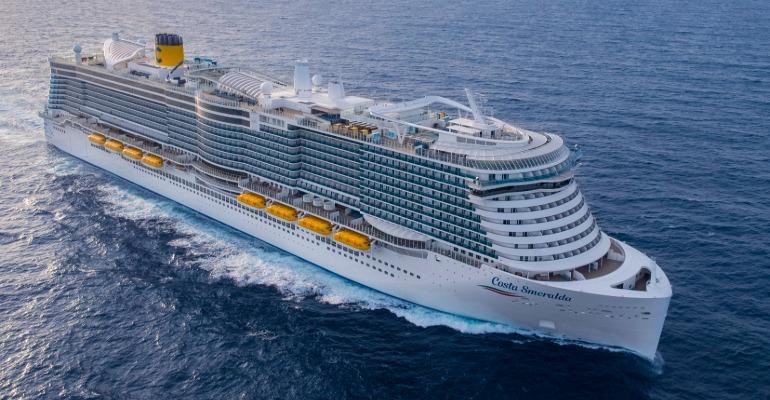It has committed to reducing CO2 emissions by 40% by 2020, 10 years ahead of the targets set by the IMO.
‘The publication of our Sustainability Report 2019 comes at a very special time, in which we have just responsibly and safely restarted our operations after a long pause’, says Michael Thamm, group ceo, Costa Group & Carnival Asia. ‘The report is an opportunity to showcase our tangible projects and the results achieved in 2019, but also to confirm that now more than ever we renew our commitment towards a sustainable development of our business model.’
Thamm added that Costa wants ‘to continue to guide the transformation’ of the industry in the coming years.
50% of Costa’s fleet will be ready to use shore power by the end of 2020, claims Costa.
Reducing emissions
The cruise line is said to be developing studies on new sustainable alternative technologies. Tests are being carried out on the use of shore power when ships are docked in synergy with ports and the company is looking to form private-public partnerships to build the infrastructure needed.
LNG-powered Costa Toscana is set to join the Costa fleet next year alongside the first Costa LNG vessel, Costa Smeralda.
Forward strategy
The report highlights the results of 2019 projects and new ambitions, which are mainly to minimise environmental impact, encourage community collaboration, and promote sustainable, responsible and shared models. Plans for the future include: 50 metric tons less waste each year; campaigns to promote responsible use of water on board and halving food waste on board Costa’ ships this year - 10 years ahead of the United Nations 2030 Agenda – and signing of environmental agreements, comparable to the ESI (Environmental Ship Index) Implementation Protocol and the Blue Maritime Charter with the port of Marseille, the Genoa Blue Agreement promoted jointly by the Harbor Master’s Offices of Genoa and Savona, and the Blue Flag with the port of La Spezia.
Costa will also look to promote responsible tourism and improve the management of visitors in the interest of local communities.
Copyright © 2024. All rights reserved. Seatrade, a trading name of Informa Markets (UK) Limited.
Add Seatrade Cruise News to your Google News feed.  |

